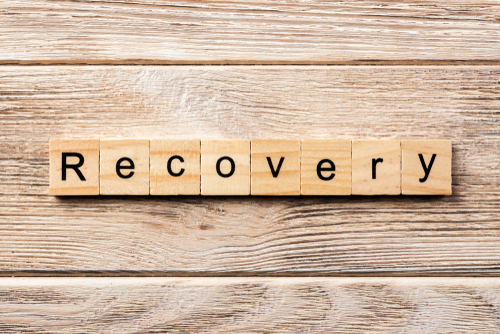Nutrition plays a huge role in how we feel, but it also is how our bodies recover. Alcohol and drug addiction are no different. Because these substances take quite a toll on the human body, it’s important to be mindful of the way nutrition helps with the entire recovery process. There are not only many adverse nutritional effects common with addiction, but there are ways you can use food to aid with your journey back to health. With drug overdoses becoming the number one cause of injury-related death in the United States, now is the best time to seek help for yourself or your loved one in need. In this guide, we’ll discuss the way alcohol and drug addiction affects nutrition as well as the best ways to use a healthy diet to aid in recovery.
How Does Addiction Affect Health?
While many people know that addiction to alcohol and drugs has a negative effect on our overall health, how much do you really know about the dangers of these substances on the human body? According to the National Institute on Drug Abuse (NIDA), some of the most common health effects from a nutrition standpoint include the following:
Opiates: With opiates such as oxycontin, morphine, and heroine, there is permanent damage to gastrointestinal organs. Symptoms might include constipation, diarrhea, vomiting, and nausea.
Marijuana: Marijuana is the only drug that doesn’t lead to the suppression of the user’s appetite. In fact, the opposite is true. It’s shown to increase user’s appetite, making those who are addicted to marijuana more likely to be overweight.
Alcohol: Alcohol does damage to the liver which is how toxins are flushed from the body. In addition, there is usually damage to the pancreas which is what controls the body’s blood sugar levels and fat absorption rate. Because of this, alcohol can lead to diabetes, cirrhosis of the liver, and malnutrition.
Stimulants: Finally, common stimulants like cocaine and methamphetamines decrease the user’s appetite. This makes those who are addicted more likely to be underweight or to have fluctuations in energy. All of the above side effects are bad news for the human body which relies on the right nutrients in order to thrive. By consuming less food (except in the case of marijuana), users are likely to be underweight or malnourished. Digestion issues like vomiting and diarrhea are a sign that nutrients are not being absorbed properly. Ultimately, a proper diet needs to be a part of the recovery process in order to ensure a full recovery.
How Nutrition Helps Addiction Recovery
A healthy diet during the addiction recovery process will lead to greater success. In fact, some foods help with the withdrawal process, in particular, to make the transition less of a challenge for the patient. For example, foods high in carbohydrates like beans, pasta, potatoes, and carrots are high in serotonin, the relaxation hormone. From there, the patient will need to determine if they are suffering from any vitamin deficiencies. The most common deficiencies for alcoholism include B-complex vitamins and B12. Any other deficiencies can be discovered by a doctor through a doctor-supervised recovery program.
Maintaining a Healthy Diet
In the first year of recovery, having a healthy diet is essential. The right foods will help the body heal from the inside, reduce cravings, and return the weight to healthy levels. One of the biggest challenges is avoiding using food as a new coping mechanism. Many patients are likely to over-indulge as a way to cope with their new lifestyle, and this just sends them in a different unhealthy direction.
In the early stages of recovery, new foods will be introduced slowly. Because the body might be struggling with digestion, it’s best to start small and build your tolerance to new things. Small and frequent meals might take the place of the usual three meals a day. It’s best to avoid sugar and caffeine in the early stages since these are the most likely to be abused. These are their own abusive substances, and they produce similar highs and lows to alcohol and drug addiction.
Low-nutrient foods might be easy, but they don’t provide nutritional value that will overcome cravings and mood swings. Diet counseling should be a part of regular therapy during the recovery journey. Many patients lack nutritional education, and they need healthy habits they can take with them throughout their lives to keep their bodies in prime condition. The human body is a resilient thing. The right nutrients will reduce the risk of disease and weight gain. Here are fundamental nutrition tips for recovery:
- Drink plenty of water throughout the day
- Limit sugar and other treats
- Learn healthy cooking techniques
- Eat breakfast and avoid skipping meals
- Eat foods high in fiber like legumes, fruits, and
- Avoid using food to treat anxiety and stress
- See a nutritionist regularly
Creating a healthy support system around the right food choices is key. People need to feel empowered to make healthy choices not only during recovery but into the future as well.
Creating Success with Nutrition
Many people underestimate the role of nutrition in the recovery process from alcohol and drug addiction. It’s clear these substances do a number on the body, especially in terms of digestion and nutrition. Part of the recovery process should be dedicated to learning healthy food habits. Learning how to keep your body healthy is key to leading a long, happy life.
Many people who overcome drug and alcohol abuse then find solace in food addictions and an unhealthy relationship to “lesser” substances like sugar and caffeine. While these things are preferable to drugs and alcohol, they carry similar nutritional risks. If you or someone you love are struggling with drug or alcohol abuse, it’s time to get help. Don’t underestimate the power of a healthy, balanced diet. When your body feels better, your mind feels better.






